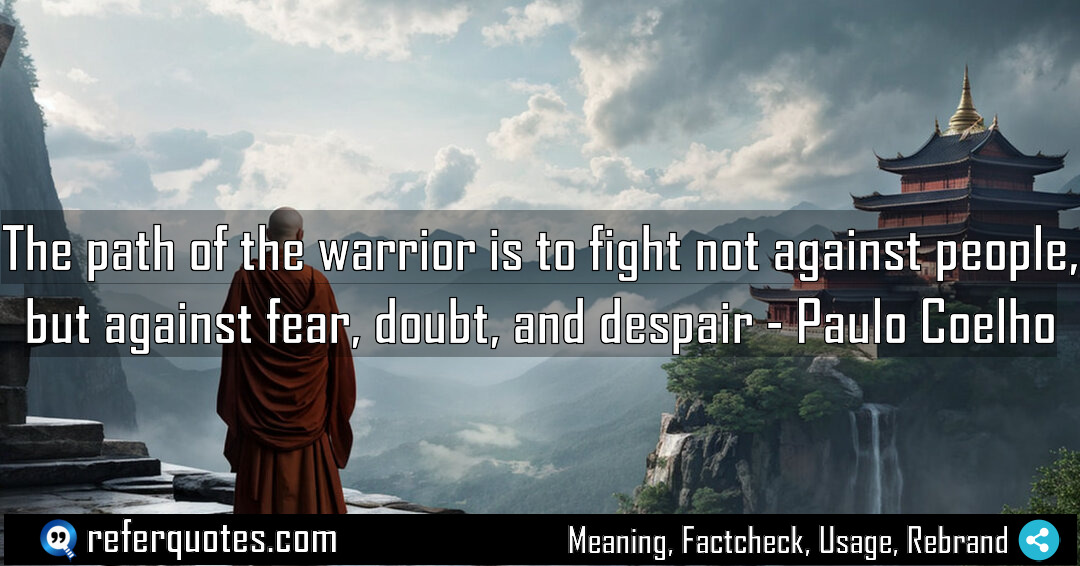You know, the path of the warrior is to fight not against people, but against our own internal enemies. It’s a powerful reframing of what true strength really means, shifting the battle from the outside world to the landscape of our own minds.
Share Image Quote:Table of Contents
Meaning
It means the real battle isn’t with others; it’s the internal war against your own fear, doubt, and despair.
Explanation
Look, I’ve seen so many people, myself included, waste energy fighting external opponents. A rival, a critic, a difficult person. But this quote flips the script entirely. It tells us the true warrior—the one on a genuine path of growth—understands that the most formidable enemy resides within. Your own fear that paralyzes you. The doubt that whispers you’re not good enough. The despair that makes you want to quit. Conquering those is the real, lasting victory. It’s about inner sovereignty.
Quote Summary
| Context | Attributes |
|---|---|
| Original Language | Portuguese (369) |
| Category | Personal Development (697) |
| Topics | courage (145), inner strength (4), resilience (106) |
| Literary Style | metaphorical (61) |
| Emotion / Mood | motivating (311) |
| Overall Quote Score | 84 (319) |
Origin & Factcheck
This comes straight from Paulo Coelho’s 1996 novel, The Fifth Mountain, which is set in 9th-century BC Israel. It’s a common one you might see floating around on social media attributed to some vague “Native American proverb” or other sources, but nope, it’s definitively Coelho.
Attribution Summary
| Context | Attributes |
|---|---|
| Author | Paulo Coelho (368) |
| Source Type | Book (4032) |
| Source/Book Name | The Fifth Mountain (35) |
| Origin Timeperiod | Contemporary (1615) |
| Original Language | Portuguese (369) |
| Authenticity | Verified (4032) |
Author Bio
Paulo Coelho(1947) is a world acclaimed novelist known for his writings which covers spirituality with underlying human emotion with a profound storytelling. His transformative pilgrimage along the Camino de Santiago inspired his breakthrough book, The Pilgrimage which is soon followed by The Alchemist< which went on to become the best seller. Through mystical narratives and introspective style, Paulo Coelho even today inspires millions of people who are seeking meaning and purpose in their life
Official Website |Facebook | Instagram | YouTube |
Where is this quotation located?
| Quotation | The path of the warrior is to fight not against people, but against fear, doubt, and despair |
| Book Details | Publication Year: 1996 (Brazil); ISBN: 978-0-06-112209-5; Latest Edition: HarperCollins 2009; 256 pages. |
| Where is it? | Approximate page 225, Chapter: The Inner Warrior |
